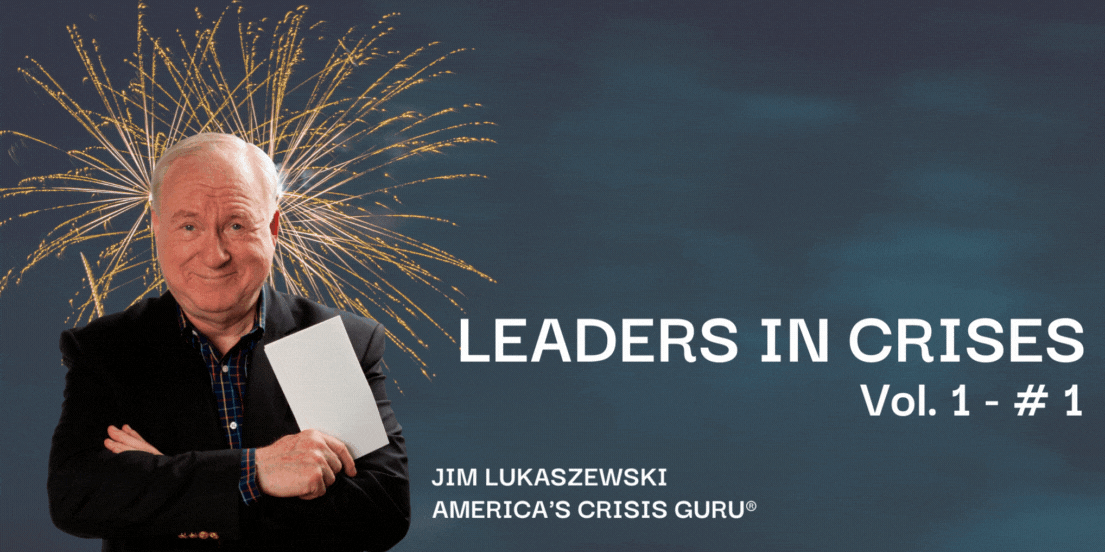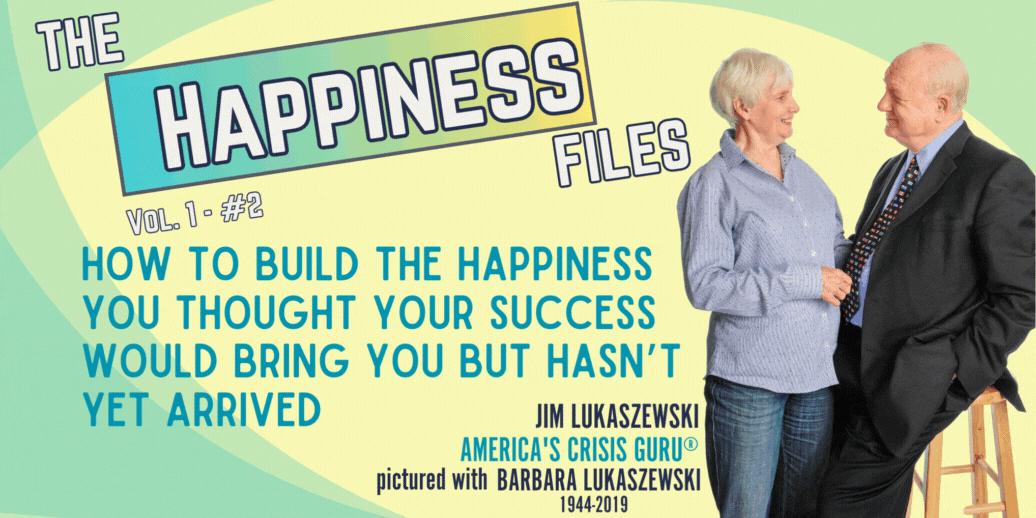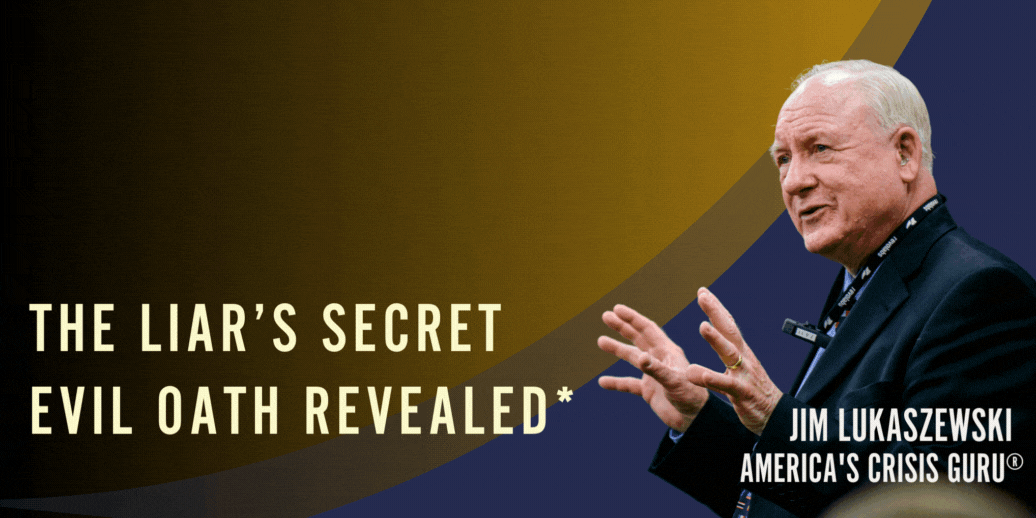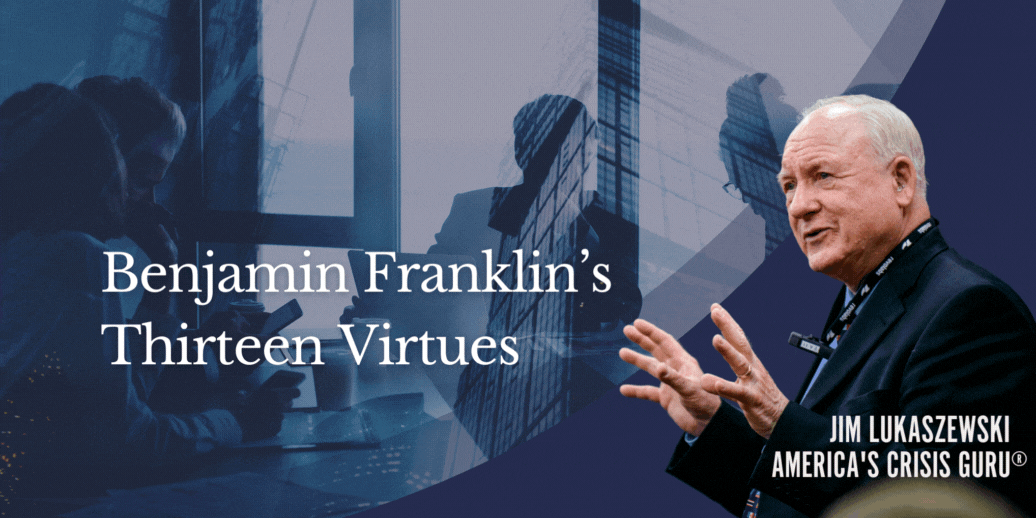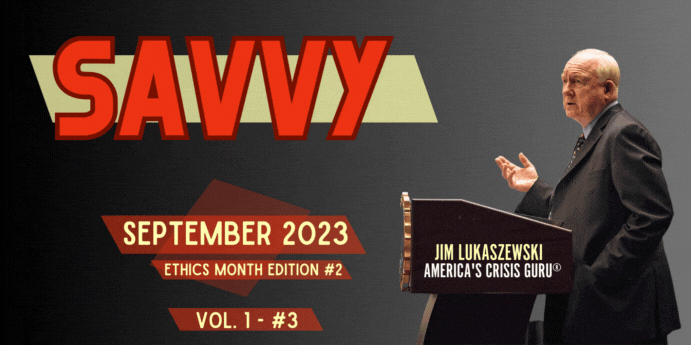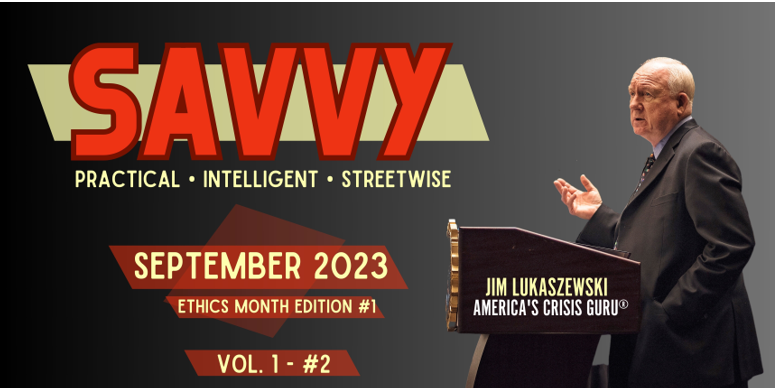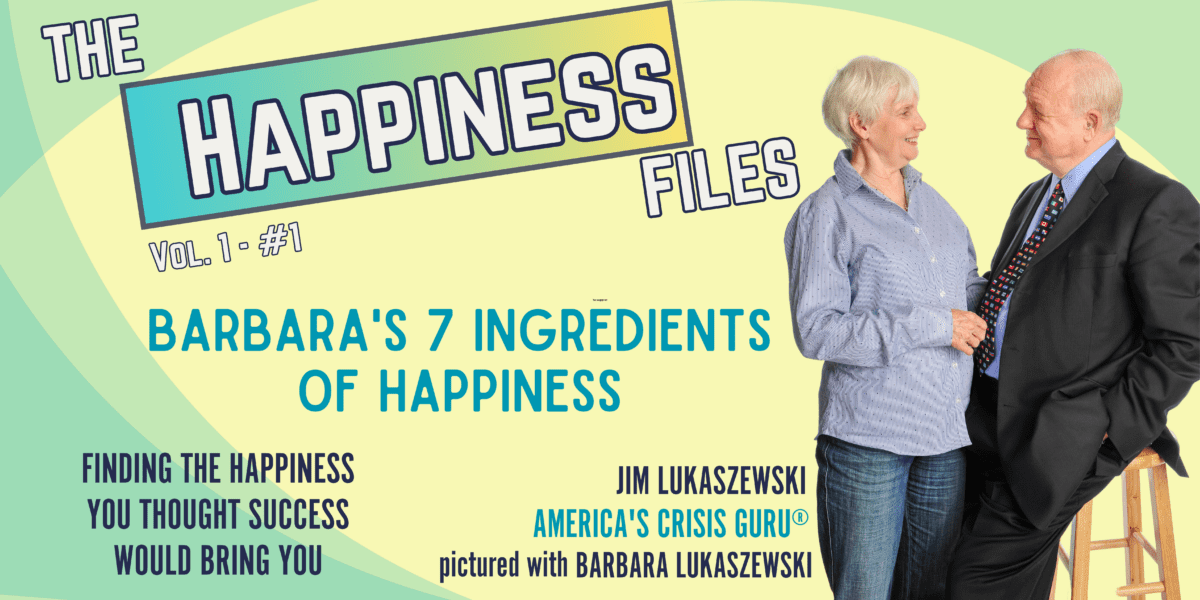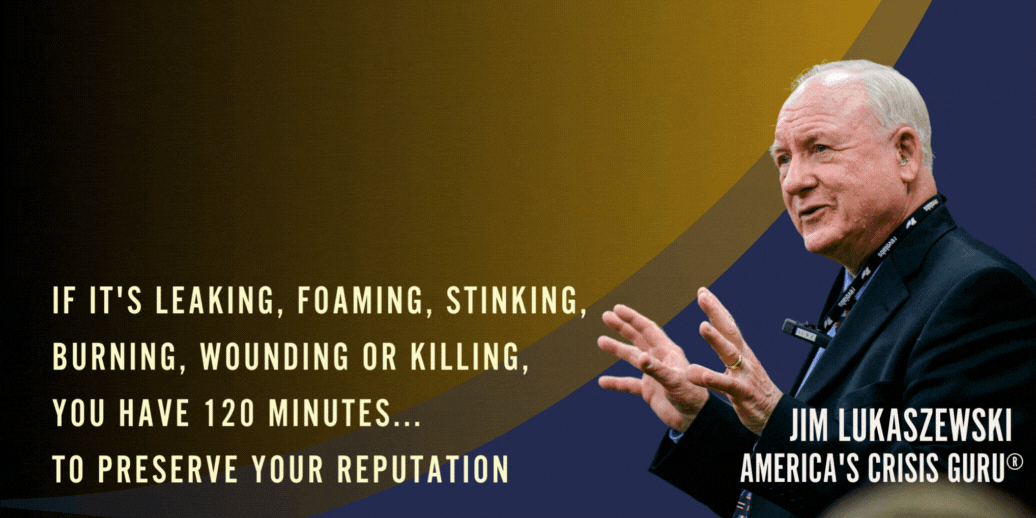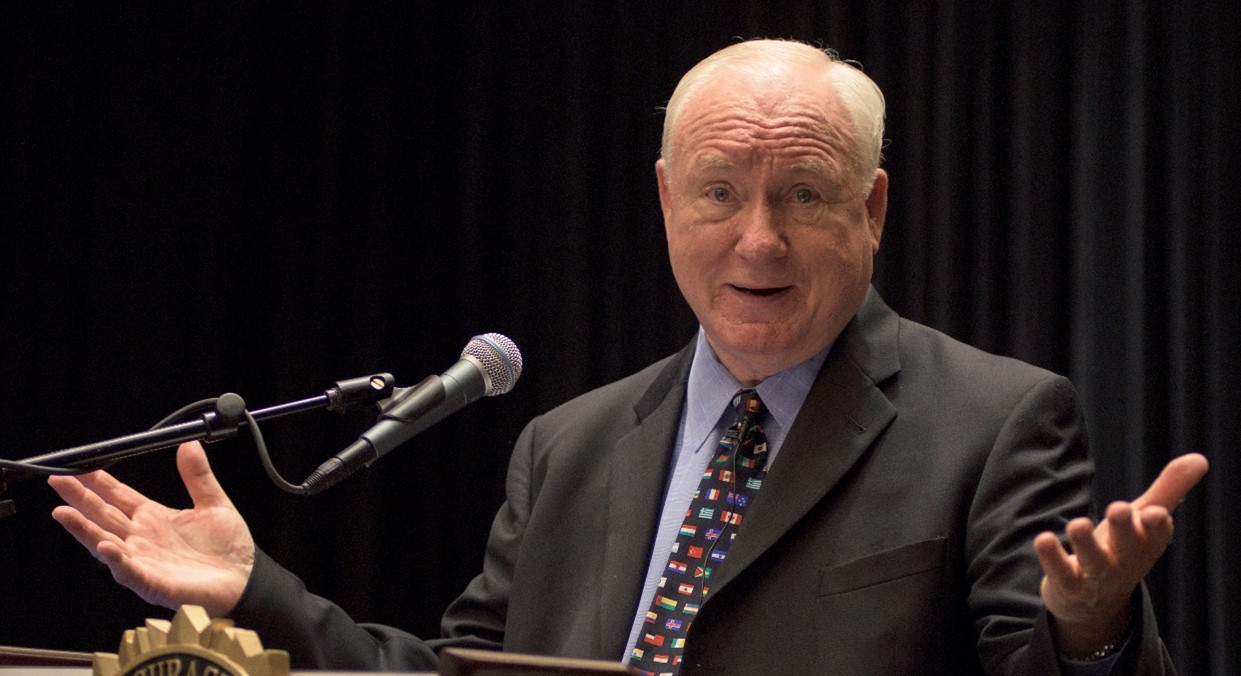| Leaders in Crises are times for: · Discovering new leaders/leadership. · Uncovering incompetent and ineffective leaders. · Taking needless risks. · Exposing leadership misbehavior, and intentionally bad decisions. · Helping troubled leaders depart promptly. Are these scenarios in your readiness plans? |
Blogs
How To Build The Happiness You Thought Your Success Would Bring You But Hasn’t Yet Arrived – Part One
Success, accomplishment, happiness, thank you’s, accolades, and gratitude only come, for most of us, when you build your own happiness triggers into your daily life, and the lives of others.
I’m talking about personally building a really fun and important personal habit, remembering what you learned every day that helped you help others have a better life. Guess what, every day and time you make someone else more successful, they will in turn remember and acknowledge your role in that success.
Task One:
How to Help Yourself Remember
What You Learn Every Day and From
Whom Your Daily Lessons Learned Log
Consider these six questions every day. (The discipline is that you respond to at least one. The more you harvest daily from your life, just brief reminders, a word, phrase, name, idea, or short sentence, the more you brilliantly and magically remember later will inspire you, and others around you. The six questions are:
- What’s the most important thing I learned today? From whom?
- What’s the most interesting thing I learned today? From whom?
- What’s the most unusual, surprising thing I learned today? From whom?
- What questions have arisen today that need answers? From whom?
- What will I do differently tomorrow, based on what I learned today, and thank whom?
- How can I share these learnings with others?
Make it formal. I still like notebooks, so I have a notebook for lessons learned and I generally require all of my employees to maintain them for themselves and copy me on them daily. The notebook is simply filled with the six questions.
- Each question has two or three lines on which to jot something down.
- Keep it in your computer or wherever it is convenient. I like notebooks because standing by my desk they remind me to do this every day.
- Once you start doing this you really recognize how many people you owe your own success to and they should know about that and they should hear it from you.
A simple and meaningful, personal note is quite powerful.
When I was 26 years old, I was in a management training program at a large retail music company in Minneapolis and the management training program consisted of assigning an up-and-coming individual to supervise store departments. I worked part-time here for several years out of high school in the band instrument department. The first department, they assigned that I managed for a month was Stereo Components and Electronic Devices.
My manager, Dick Loberg, gave me just two assignments every month.
First, I needed to conduct a sales meeting at 7:30 every Tuesday morning for an hour and provide the department’s five award-winning salespeople a fresh idea to use that week in closing sales.
Second, at least twice during the month I needed to send each of the five men a brief note thanking them or recognizing them for something they were doing that I liked.
I learned quickly that successful salespeople can make any suggestion a success.
The notes were a little harder, but I managed in the first month to give everybody two brief notes about something I liked about what they were doing.
In the second month, one of these salesmen, Tom, passed away. It wasn’t my fault but my boss came down and said to please go through Tom’s desk because his family was coming over tomorrow to spend half the day in the space where Tom worked for 35 years. “Be sure you get rid of anything that could embarrass him or the company.” I found nothing.
My last item to tackle was Tom’s desk. There in the lower right-hand drawer was a box, way in the back. I was prepared to pitch it then noticed that all the pages were in chronological order going back almost 30 years, the length of time Tom worked in the company. Every piece of paper had a note from someone complimenting Tom on something. There were several from the founder of the company who said things as simple as, “Tom, you saved the Anderson’s business, I owe you for that one!” It was signed by Paul A., the founder of Paul A. Schmitt Music. Because they were in chronological order leading up last week, there at the head of the stack, were the two notes from me. I teared up.
I put that box on his desk just in time for his family to arrive the next morning. The whole family dove into this box with great excitement and they pulled out papers and talked about when Tom, their dad, uncle, or grandpa had talked about these various events at the dinner table. Tom had taken them home, showed them off, talked about them, and was very proud of them.
People remember being thanked. And maybe all of us need to be thanked a lot more often. I tear up almost every time I tell this story. This experience is something you want to be responsible for.
In Happiness File #3, I’ll be talking about “The Platinum Rule” for making a happy life.
The Platinum Rule for making a happy life. “Help others achieve those things they feel are meaningful, helpful, and important for others beyond themselves, but need help completing what they hope to accomplish.” Translated, do good things for others who are doing good things for, yet others and they’ll all come to thank, recognize, and do good things for you in return.
Jim Lukaszewski – Snap Wisdom #3
The Liar’s Secret Evil Oath Revealed*
| With a hand on someone else’s checkbook or reputation… I solemnly swear to avoid the truth; The whole truth; Any part of the truth; Using every tool on the Liar’s List, and more; To lie, mislead, misstate, demean, humiliate, and subvert; To disparage the truth, and threaten pain and suffering to truthtellers. * Note: These ideas came to mind while watching a number of far-out-there Congressmen working on destroying our democracy and blaming it on everybody else. If you have additions to this oath, I would be happy to publish them in an upcoming issue of Savvy. – Jim |
Get permission to reproduce or quote. Contact the copyright holder, jel@e911.com.
Concise Advice #19: Your Mother Was Wrong About One Thing
“Words will never hurt you…,”
Is a Total Lie.
Remember, when you were five years old, and the first time you got beat up and shouted at on the playground by some kid you didn’t even know? Mom and Dad or Grandma and Grandpa said, “There, there…sticks and stones may break your bones, but words will never hurt you!”. By age nine you knew this was a total lie. Abusive, Demeaning, Uncivil, Unconscionable Language, and Accusations victimize, producing hidden wounds that last a lifetime.
When those words and deeds come back to haunt you, unless you say something, you always suffer alone. That’s because wounds from words are:
- Bloodless
- Lifelong
- Invisible
- Irreversible
- Revictimizing
- Scarless
- Unhealable
- * Experiences of Others Can Trigger your Sudden Devastating Reliving of a Prior Experience of Anger, Fear, Terror, and Hurt.
*The last item is the worst, the sudden revictimizing suffered when something outrageous in someone else’s life triggers terrible and painful memories from your own life. The anger, terror, fear, and hurt rush back, you can’t stop it. Whenever I talk about sexual harassment, for example, or assault, I assume that at least 40% of the female members in the audience are reliving something awful from their past life.
| In Every Culture: There are words and behaviors you can never take back, words that cause lifetime victimization and suffering of others and yourself. |
What I Believe and You Should Too
Appalling, questionable, inappropriate, unethical, unconscionable, immoral, predatory, improper, victim-producing, and criminal behaviors are intentional. Adults choosing to harm, damage, embarrass, or victimize.
I Also Believe
Compassionate, decent, honorable, lawful behaviors, leadership decisions, and moral behaviors are also intentional.
You Already Know This
The choice is always clear and always yours.
Remember and Apply
the Ingredients of Decency First
| Apology | Openness |
| Authenticity | Promptness |
| Candor | Respect |
| Charity | Simplicity |
| Compassion | Timeliness |
| Honesty | Transparency |
| Hope | Truthfulness |
| Humility |
Keep this list handy near your phone, maybe in your wallet, when you are tempted to say or do something that might be irritating or offensive, choose and ingredient of decency instead.
Avoid These Real Causes
of Permanent Victimization
| Abuse | Humiliation |
| Arrogance | Ignorance |
| Assault, physical and verbal | Lies |
| Bullying, physical and verbal | Neglect/negligence |
| Callousness | Omission |
| Carelessness | Sarcasm |
| Deception | Shame |
| Dismissiveness | Surprise |
| Fear |
Then, Even Worse are
Unconscionable Behaviors
All are unethical, and most are also evil because their use is diabolically intended to harm and victimize the innocent.
Unconscionable intentions, behaviors, actions, and decisions are those that:
| *Vilify | Express Anger and Irritation, to Cause Harm |
| Damage | Demand or bully |
| Demean | Are Mean |
| Dismiss | Are Negative |
| Diminish | Insult |
| Humiliate | Disrespect |
| Cause Intentional Pain | Disparage |
Speak Up
Unconscionable intentions, behaviors, actions, and decisions and their perpetrators need to be called out when you see them or hear of them. It’s the only way we can rid ourselves of these behaviors and the people who intentionally abuse us and others with them.
Promote Organic Goodness: The Harrison Decency Principles of Happiness
Steve Harrison, the co-founder and chairman of Lee Hecht Harrison (now LHH Division of Adecco, Switzerland), was truly passionate about constantly finding small decencies for those around him, those actions that people may not even notice but ultimately do, that are done by individuals who expect nothing in return.
He was an executive you could genuinely say was beloved by those who worked for him. He spent time with them, listened to them, and thought about them and countless ways to do small decencies. He had those in leadership positions in his company do the same.
His forceful answer to the question, “…but Steve, how do you get decency started in an existing organizational structure?” “OBSESSION!!, he would practically shout, and often did, Be the one or find the one that is obsessed with decency, civility, and integrity.”
In our 2021 book, The Decency Code, The Leaders Path to Building Integrity and Trust ©2021 MacGraw Hill, Steve outlined his Principles of Decency. These principles are the ingredients for establishing organic goodness in an existing organizational structure. His principles are a roadmap and paths to much happier employees.
The Harrison Organic Goodness Principles of Civility, Small Decencies, and Happiness.
- Build trust at every opportunity.
- Collaborate genuinely.
- Demonstrate a willingness to sacrifice profits for principle.
- Demonstrate and applaud small decencies – “the exponential power of non-conditional acts of kindness and civility.”
- Establish and promote business decencies, i.e. thoughtful, meaningful gestures, offered in ways small and large that can change a corporate culture for the better.
- Decencies often happen outside of a CEO mandate or corporate policy. They are spontaneous rather than published as values or ethics statements.
- Develop and sustain a coaching culture.
- Genuine recognitions.
- Preserve rich traditions.
- Listen (perhaps the greatest decency of all).
- Model ethical-compliant behavior.
- Respect innovation failure. Learn the lesson failures teach.
- Tell the truth, rather than spinning the truth … the no BS rule.
- Vocalize, publicize, and operationalize core values, ideals, and ethical standards:
o In all scheduled operations and performance reviews
o In all group company functions
o In every new-hire onboarding session
o In every CEO message
o In all compliance and ethics training
o In all executive coaching programs
o In all leadership programs and talent development processes
- Eradicate negative language everywhere, every time.
Steve knew that Organic Goodness produced happiness for those devoted to his Principles of Goodness and practiced them every day for the benefit of others.
| Elements of Organic Goodness | Lexicon of Civility and Simple Decencies |
| Apology | “How can I help you?” |
| Candor | “How nice of you.” |
| Decency | “I can do that.” |
| Empathy | “I’m sorry.” |
| Engagement | “Let me help you.” |
| Honesty | “My pleasure.” |
| Humility | “Please ask me, I’m ready to help.” |
| Openness | “Please forgive me.” |
| Responsiveness | “Thank you.” |
| Transparency | “Yes.” |
| Truthfulness | “You’re welcome.” |
Eradicate Negative Language Everywhere, Every Time.
The technique is simple and direct. Every time you or someone in your group or the audience mentions a negative phrase you immediately and constructively correct that phrase. For example, “Steve, that’s not the way we do it.” Response, “Help me here and tell me what you would do, could do, or should do.” You may feel a little squeamish the first few times you do this, but you’ll notice that your audience, whether it is one person or a hundred people, begins to settle down when you can give them constructive, positive, and helpful alternatives on the spot.
Your Mini Bad News Eradicators and Conversions of Negatives to Positives.
| STOP DOING THIS… | DO/SAY THIS INSTEAD |
| “I don’t want that” | “Here’s what I want…” |
| “No” | “Let’s figure it out” |
| “Never” | “Let’s look for what’s possible” |
| “I won’t do it” | “What I can do is limited…” |
| “I don’t like him” | “What I’d like to see from him is…” |
| “That’s not what I meant” | “What I mean to say is…” |
| “Stop twisting my words” | “Use what I said exactly…” |
| “I hate that” | “Here’s what I want…” |
| “I hate you” | “Let’s find a way to work this out…” |
| “Not that way” | “How about doing/saying/acting this way instead…” |
| “He won’t go for that” | “He’s more likely to go for…” |
| “It’s always no to that approach | “Let’s find a way to get this done…” |
| “I can’t imagine that she will agree to that” | “Here’s what I think she might consider to…” |
| “He’s not done that before” | “Let’s find a new approach…” |
Using “not” makes anything you write or say a lie, and you the liar.
o I’m not a crook.
o I did not have sex with that woman.
o I am not a racist.
o That’s not possible.
o We are not responsible.
Build and maintain your own negative eradication table that you teach or share over time, every day.
See the Bad News Eradicator.
Negative talkers nearby have a limited and repetitive set of verbal bullets. Write them down.
Practice transforming them. Take the initiative and learn to publicly translate negatives into positive small, decent gestures. I often believe in the transition “Here’s a more helpful way to say that…”.
Be helpful, be decent, and suggest specific positive approaches. The people around you will thank you (privately) for helping bullies and negative leadership into a better way of doing things.
Make the conversion habit a simple, but powerful daily, giant small decency that you share everywhere you go.
| A Special Message from Jim Lukaszewski A Tribute to Steve Harrison 1939-2021 |

Steve Harrison, co-founder of Lee Hecht Harrison, later LHH Division of The Adecco Group, died July 10th, 2021. We worked together for more than 30 years beginning in 1995. Our last task together, over 2 ½ years, was to co-author a book published by McGraw Hill in 2020 called The Decency Code, The Leader’s Path to Building Integrity and Trust. His business was outplacement, and his leadership style was of extreme humility, his passion, indeed his obsession, was finding ways to encourage others to perform, to rely on, and to teach others how to bring small decencies into everyone’s life at every opportunity.
His life accomplishments are on exhibit in the thousands of people Steve helped learn how to get back to work.
Concise Advice #18: Benjamin Franklin’s Thirteen Virtues
I Couldn’t Resist
Benjamin Franklin’s Thirteen Virtues
- Temperance: Eat not to dullness; drink not to elevation.
- Silence: Speak not but what may benefit others or yourself; avoid trifling
conversation. - Order: Let all your things have their places; let each part of your business
have its time. - Resolution: Resolve to perform what you ought; perform without fail what you resolve.
- Frugality: Make no expense but to do good to others or yourself; i.e., waste nothing.
- Industry: Lose no time; be always employed in something useful; cut off all unnecessary act.
- Sincerity: Use no hurtful deceit; think innocently and justly, and, if you
speak, speak accordingly. - Justice: Wrong none by doing injuries or omitting the benefits that are your duty.
- Moderation: Avoid extremes; forbear resenting injuries so much as you
think they deserve. - Cleanliness: Tolerate no uncleanliness in body, clothes, or habitation.
- Tranquility: Be not disturbed at trifles or at accidents common or
unavoidable. - Chastity: Rarely use venery but for health or offspring, never to dullness,
weakness, or the injury of your own or another’s peace or reputation. - Humility: Imitate Jesus and Socrates.
My [B. Franklin] list of virtues contained at first twelve, but a Quaker friend having kindly informed me that I was generally thought proud; that my pride showed itself frequently in conversation; that I was not content with being in the right when discussing any point, but was overbearing, and rather insolent, of which he convinced me by mentioning several instances; I determined endeavoring to cure myself, if I could, of this vice or folly among the rest, and I added Humility to my list.
B. Franklin Source: http://www.sfheart.com/FranklinsVirtues.html
© Copyright 2023, James E. Lukaszewski. America’s Crisis Guru®
Get permission to reproduce or quote. Contact the copyright holder, jel@e911.com.
Savvy Ethics Month Edition 2:Avoiding Moral Rabbit Holes10 Ethical Expectations of Leadership
By James E. Lukaszewski
ABC, Fellow IABC; APR, Fellow PRSA; BEPS Emeritus
America’s Crisis Guru®
Rabbit Holes
- From Dictionary.com: A strange, disorienting, or frustrating situation or experience, typically one that is difficult to navigate.
- From Jim Lukaszewski: Self-inflicted, time-consuming distractions of one’s attention when sorting through stories, euphemisms, metaphors, allegories, analogies, lies, and other creations from The Liar’s List, everything but the truth.
Ethics and ethical behavior problems have always been the toughest game in town and for the last decade front and center across our country.
The Public Relations profession seems largely absent from this generation of willful silence, where lying, distortion, unacceptable behavior, and the confusion they cause are ignored and prevail. Perhaps a walk through what I’ve learned in four decades as a teacher, advocate, direct manager of ethical recoveries, decision-making, and practices could be helpful.
The largest lesson I’ve learned is that all questionable, inappropriate, unethical, unconscionable, immoral, predatory, improper, victim-producing, and criminal behaviors are intentional. Yes, intentional.
You may want to go back and re-read the previous paragraph just to get it in your mind. We can debate this if you’d like, but you know it’s true.
There is no such thing as being accidentally unethical, or accidental fraud, or accidental harassment, or accidental misbehaviors in countless varieties. These are decisions adults make intentionally. In the course of my career, I’ve worked in many cultures, not every culture, but there is a startling consistency between what is right in most cultures and what is wrong in most cultures.
By the same token, I have also learned that civil, compassionate, decent, ethical, honorable, integrity-driven decisions, lawful behavior and leadership decisions, and moral behaviors are also intentional. The choice is always clear, and the choice is always yours, it’s rabbit holes or sensible useful, ethical decisions. You know the difference.
In the ethics business, you read a lot of philosophy from many different places and eras. The definition of ethics, the one I’ve always gravitated toward, is the one by American Philosopher Will Durant and his wife Ariel. In 1926, in the introduction to his book, “The Story of Philosophy,” he defined ethics. His definition was clear and simple, “Ethics is the search for ideal behavior.” Whoa! Yes.
I know that some who read this will once again write me rather lengthy explanations of why ethics is more complicated than this simple thought. Yet, in my reality at least, one of the key rules of finding truth is that it is often a lot simpler than you think or may have been led to believe. Rabbit holes hold everything but the truth.
In my work, I often speak of candor which I define as, “Truth, with an attitude, delivered right now!!”. Truth is always more powerful when delivered briefly and promptly.
Why are unethical behaviors so prevalent in our culture and in other cultures? My experience is that silence dominates our culture as it does in so many others. Silence is the great enabler of all bad behavior and decisions. As many of you know, my career has been about other people’s very serious troubles. And when trouble happens, some people head for the exits, those in charge tend to behave as though nothing has happened for as long as possible, putting silence in charge.
Our own profession has a reputation for avoiding conflict and candor. This lack of directness is noticed. This reluctance to engage on crucial issues is toxic to PR’s effectiveness. The clients I help who are in trouble often exhibit the same basic trouble-brewing behaviors, failing to name what is happening or worse finding ways to euphemize and therefore avoid getting the benefits of candor and clarity. People and employees notice this lack of directness, sometimes intentional mis-directness.
15 years ago, I had an extraordinary client in the pharmaceutical business who had gotten into trouble through negligent scientific activity. They were caught, publicly humiliated for a brief period, and ultimately prosecuted. There were deaths, many injuries, and six went to prison. The Chairman was acquitted mid-trial and retired. This frightening journey began with an FBI raid, agents carrying shotguns and other weapons invading a company factory.
The leaders of the company took powerful, even courageous steps. Among other things, they hired an ethics organization to talk to employees about what leadership was expected to do during this particular crisis. The results of that research guided the company after it plead guilty to numerous felonies to rehabilitate itself following the guidelines revealed in these ethics studies, and the provisions of their plea agreement.
Using employee’s own words we produced a document, “The Ethical Expectations of Leadership”. Turns out, not surprisingly, that employees have extraordinary expectations of leadership, especially in situations of emergency and crisis. There were 10 ethical expectations: words to succeed by and prevent bad behavior.
The Ethical Expectations of Leadership
- Find the truth as soon as possible: Tell that truth, and act on it immediately.
- Promptly ask the tough questions and answer them thoughtfully: This also meant asking and answering yet-to-be-asked questions by those who will be affected by whatever the circumstance is or will be.
- Teach by parable: Emphasizing right way, wrong way behaviors, rather than metaphors or warm-hearted emotional stories.
- Vocalize core business/organizational values and ideals constantly: Employees search for these most when there is trouble in the room or on the horizon. This search occurs every day.
- Walk the talk: Be accessible; help people understand the organization within the context of values and ideals, at every opportunity meetings large and small, gatherings large and small. This is a prime responsibility of all management, managers, and especially first-line supervisors.
- Help, expect, and enforce ethical leadership: People are watching, people are counting, and people know when there are lapses in ethics causing trust to be broken. When bad things happen in good organizations, it’s these occasional lapses that deepen the troubles.
- Preserve, protect, defend, and foster ethical pathways to the top of the organization: Constantly identify, explain, explore, and warn about situations where ethical processes can be compromised on the way, especially among executives on their way up the career ladder. Also, management becomes strangely silent as trouble mounts.
- Be a cheerleader, model, and teacher of ethical behavior: Ethical behavior builds and maintains trust. In fact, to have trust in an organization requires that its leaders act with integrity, ethically, and constantly.
- Make values at least as important as profits or personal gain: Studies of employee satisfaction show most people seem to enjoy working more and staying longer when they are with organizations they respect and who respect them. Wherever you find an organization or company that puts values on the same level as profits or personal advantages, there is a higher level of loyalty and support. Companies who do this specifically on principle are noted by everyone. People want to be a part of it.
- Respect employees: Respect is something all employees seek more than anything else. It’s that reciprocal respect that builds an ethical foundation for working and living, believing, and loyalty. Respect is ultimately what immunizes organizations against bad decisions and unethical behavior.
The fastest way to resolve ethical issues, problems, and questions is to begin with the truth, stick with the truth, and factually support the truth. Use other techniques and strategies turns out to be distracting and often reputationally damaging. Those rabbit holes will require that you dig yourself out. Your troubles will persist until you get to the truth.
James E. Lukaszewski, ABC, Fellow IABC; APR, Fellow PRSA; PRSA BEPS Emeritus; is the longest-serving member of the PRSA Board of Ethics and Professional Standards (BEPS), for more than 30 years.
Savvy Ethics Month Edition 1: What is Your Truth Strategy? Liar’s List or Truth Manifesto
Cayce Myers, Ph.D., L.L.M., J.D., APR, PRSA BEPS Member, Member PRSA National Board
By James E. Lukaszewski, ABC, Fellow IABC; APR, Fellow PRSA, PRSA BEPS Emeritus Longest serving member and former co-chair of the PRSA Board of Ethics and Professionals Standards (BEPS)
It seems that liars and bullies dominate the world’s information these days. Both use all too familiar tools and drastic language to keep their oppression intact and the truth hidden or missing. Liars have a toolkit that you’ll find surprising, even familiar. We call it The Liar’s List. These techniques are their verbal and written tools for truth avoidance.
- Allegories
- Analogies
- Balancing
- Euphemisms
- Leveling
- Lies
- Metaphors
- “Nuanced Descriptions”
- Obfuscation
- Similes
- Stores
- Translations, “in other words…”
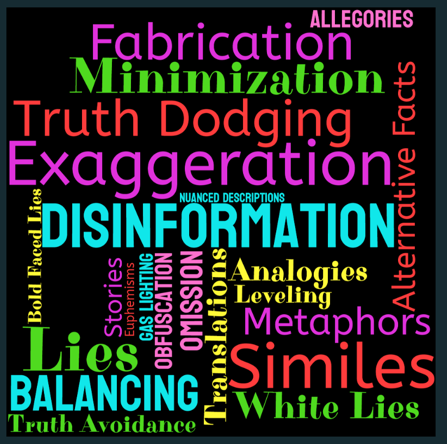
The Liar’s List
Are you surprised? This is, of course, a list of techniques communicators in practically every culture on the planet use daily. Whether used for good or something else, the one common feature of all these tools is that truth is missing, intentionally. It’s truth avoidance, whatever the purpose, however well-intentioned. People notice, especially the victims of these techniques.
Items on the Liar’s List are never fully truthful and more often are used to avoid being direct, plain-spoken, emotionless, and clearly responsive.
Most of those seeking truth only find truth dodgers and truth avoiders. Truth seekers feel victimized.
The first casualty if you use these techniques is trust loss. Remember, trust lost is replaced with fear, anxiety, uncertainty, doubt, and anger. That’s a big price to pay for the pleasure of telling a cute story rather than the plain truth.
Victims, when confronted with these techniques, get upset because they know that what they need is being purposely avoided. The quickest way to drive victims to a lawyer’s office or seek powerful advocacy assistance is failing to recognize that victims need 5 things:
- Validation: Recognition, acknowledgment, and validation of their suffering.
- Visibility: A platform for telling their story in their own words.
- Vindication: Credit for the impact of their suffering on improving the detection, prevention, deterring, and reduction of future occurrences.
- Allocution: An admission and apology from the perpetrator or predator.
- Restoration: Sometimes recovery of damages.
Truth dodging is an insidious problem in the field of communication. For example, storytelling has become a cottage industry in the field, it has become a catchphrase in the communications profession. Stories present major problems:
- Stories are fabrications. The news story or news release has a snappy headline, a thought-provoking or catchy lead, followed by a beginning, middle, and end usually containing a conclusion, lesson, self-evident truth, or punchline. Not exactly how life actually happens.
- Stories usually contain bits of truth mixed into their fabrication batter.
- Stories feel like the truth because we are entertained, and sometimes inspired. However, stories are only partially true, therefore, also partially untrue . . . a lie.
Good communication is truthful, direct, and clear. Ethical public relations practitioners using stories and other techniques from The Liar’s List need to focus on truthful information, narratives, and conclusions. Mindful that partial truth also indicates partial falseness that needs to be revealed and explained. Your trust-ability and credibility is conferred on you by the perception of others reflecting your behaviors and deeds.
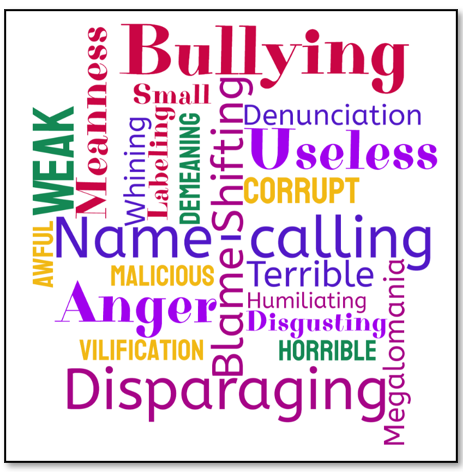
Drastic Language – The Bully’s Tools
The vocabulary of bullies is the language of desperation, greed, powerful, corrosive, malicious, and intentionally harmful. Recognize these behaviors and call them out.
Your Truth Manifesto
“To know the truth and speak of it is helpful, important, and sometimes courageous. To know the truth but equivocate or speak about anything but that truth is willfully harmful, intentionally misleading, and often unethical.” – Unattributed proverb
The Truth Manifesto is designed to help you avoid using the liar’s techniques regardless of how benevolent or helpful your motives. Or, at the very least, help you use them sparingly. The manifesto is a public declaration of your intentions, opinions, objectives, and motives. Truth always relies on simple sensible understandable words and deeds. That’s how you find the truth, often buried in all the rest.
The Truth Manifesto, is something you can easily absorb, use, and teach others.
- “When problems or opportunities occur, we’ll be prepared to talk openly about them and act quickly to respond operationally.”
- “If the public should know about an issue or problem which could affect them, we will voluntarily talk about it as quickly and as completely as we can.”
- “When problems or changes occur, we will keep the community and those affected posted regularly until the problem or changes have been thoroughly explained or resolved.”
- “We will answer any questions the community or victims may have and suggest and volunteer additional information on matters the community has yet to ask questions about.”
- “We will be cooperative with all interested news media, but our primary responsibility is to communicate directly with those most affected by our actions as soon and continuously as possible.”
- “We will respect and seek to work with our critics and those who oppose us.”
- “We will tell the truth with facts and proof, refraining from truth dodging and avoidance techniques.”
“What Is Your Truth Strategy?”
This is a significant question about your tomorrow. Successful tomorrows have truth and simplicity at their center.
Failing to have a truth strategy or using other items from The Liar’s List simply prolongs, expands, and further blocks getting to the truth. In crisis, especially, bad things get worse before they get better. Failure to seek, identify, and communicate with aggressive truthfulness is the main cause of poor outcomes and failure.
The Truth About Truth Dodging.
Words matter. Style matters. Context matters. Looking at The Liar’s List and the conventions of truth avoidance there are some simple ways to communicate truthfully, honestly, and ethically. The profile of truth, in our experience, is statements and information that are simple, sensible, positive, clearly helpful, constructive, useful, and obviously true. Write less and make it more important and truthful. Say less and make your words memorably truthful. Resist the use of techniques on The Liar’s List.
Say what you mean. Mean what you say. Fewer words often lead to more rapid understanding. Avoiding aggressive, drastic language can reduce contention, foster agreement, and even peace.
Barbara’s 7 Ingredients of Happiness
August 30, 2023
So, why are we talking about happiness? Three reasons; Number 1, my wife of 56 years Barbara (met in High School) and I had an extraordinary life together. I called her The Sunshine Girl because she was always happy and she taught me how to be happy, too. To our surprise, our unintended example seemed to have a powerful effect on those around us. Barbara died in 2019. This is her legacy.
Number 2, In 2021 A friend and I, after three years of work, in the middle of Covid 19 published a book about Decency and Civility, The Decency Code © 2021, McGraw Hill. It failed. In the process, we discovered that many successful people are happy. Decency is the critical ingredient in achieving happiness. And yet for so many more the accolades, gratitude, and recognition they expected would come with their success never happened. But it can. If you help it happen.
Number 3, Happiness comes to those who help others create it for themselves. It’s The Platinum Rule, “Help others achieve those things they feel are meaningful, helpful, and important to others, but who need help completing what they hope to accomplish.” Do good things for others, doing good things for others, and all will do good things for you.
Throughout much of our life together we deferred talking about how our happiness occurred. Frankly, we figured that if we talked about it, we’d probably mess it up. But toward the end of her life, and people knew about her illness, they pressed us to talk more about this topic. The result of our conversations is the list below. We share them here because they might help you, as they helped us.
- Intentionally say nice things about and to each other in private and publicly every day, everywhere.
- Avoid saying the two or three divisive, corrosive, “Get-even” things you might really want to mention every day. Let them go.
- Always better to be positive or blah than negative or inflammatory.
- Rid your lives of negative, irritating, and intentionally abrasive people. Walk away. Skip the goodbyes. Immediate happiness happens.
- Make every day simple, sensible, and satisfying for yourself and for others.
- Maintain a genuine respect for those you care about 24/7.
- Place the responsibility for your success on those closest to you or who really care about you.
Do this every day and the payoff is immediate and pleasant. What are your happiness ingredients? Please send them to me and we’ll build a powerful running list of more happiness ingredients. Email me at jel@e911.com.
Jim Lukaszewski – Snap Wisdom #2
During the First 120 Minutes – Activate Your Crisis Response Checklist
- Stop the production of victims.
- Tend to the victim’s needs.
- Communicate frequently internally.
- Alert those outside your organization who are directly affected.
- Call your insurance company.
- Have an experienced crisis communication consultant nearby or on board.
- Hire an attorney competent to the situation.
- Call your Mom, do what she says, and things will get better by tomorrow afternoon.
- Deal with new media, old media, critics, bloviators, bellyachers, backbench complainers, and survivors.

